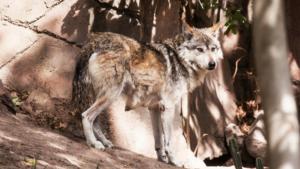Online Messenger #249
(view with pictures, as displayed in email)
Western Watersheds Challenges the BLM’s Management of the Sonoran Desert National Monument
On Monday May 20, 2013, Western Watersheds Project and the Grand Canyon Chapter of the Sierra Club filed litigation in federal court in Phoenix, Ariziona challenging livestock grazing on the Sonoran Desert National Monument west of Phoenix. The Bureau of Land Management (BLM) Resource Management Plan that allows livestock grazing to continue on 157,210 acres within the National Monument is based on a deeply flawed pseudoscientific analysis.
For over a decade, the BLM ignored, altered or simply redefined data that would have forced them to discontinue livestock grazing on the monument. In dozens of instances, the BLM lowered the bar to ensure private cattle would still use these public lands. The Obama Administration pledged to rely on science, but this plan is a clear case of agenda-driven decision-making where BLM arbitrarily lowered the land health objectives and ignored years of data and the conclusions of other researchers regarding the negative impacts livestock have on monument lands. The BLM even went so far as to reclassify unsurveyed monument lands as having “light use” in order to justify continued livestock use.
All of these misrepresentations harm species such as the Sonoran desert tortoise, pronghorn, bighorn sheep, saguaro forests, and desert grasslands the Monument designation was supposed to protect. Western Watersheds Project is confident that we will prevail in this newly filed litigation and win better protections for Monument resources.
The two groups are represented by Laurie Rule at Advocates for the West. Thank you Laurie!
WWP Challenges the U.S. Department of Agriculture Sheep Experiment Station to Protect Grizzly Bears
On Friday May 17, 2013 Western Watersheds Project joined Cottonwood Environmental Law Center, Native Ecosystems Council and Yellowstone Buffalo Foundation in filing litigation in federal district court in Boise, Idaho to challenge domestic sheep grazing that is jeopardizing the continued existence of the protected Greater Yellowstone grizzly bear population. The U.S. Fish and Wildlife Service had determined that grazing on the U.S. Sheep Experiment Station in the Centennial Mountains of southwest Montana and eastern Idaho would not harm the rare bears, but that determination came before a grizzly went missing under suspicious circumstances in the fall of 2012. The U.S. Department of Agriculture grazes domestic sheep under a Biological Opinion that states “no known grizzly bear mortalities have occurred in or near the action area in the recent past.”
Meeting notes between the U.S. Fish and Wildlife Service and the Sheep Experiment Station obtained through the Freedom of Information Act state that within the past 8 years, there have been several grizzly bear mortalities near the Sheep Experiment Station. Last fall, the cut collar of a missing four-year old male grizzly (#726) was found hidden under a rock in a creek on the Sheep Station. The collar was found close to where the government’s sheep were being grazed, and a spent rifle cartridge was found at the sheepherders’ camp. The body of the bear was never found but the sheepherders were never questioned. Killing a grizzly bear is a federal crime because grizzlies are protected under the Endangered Species Act.
Grizzlies are dying on and near the Sheep Station as a consequence of this government grazing. That fact cannot be ignored any longer and the lawsuit will compel the government to reconsider the consequences of sheep grazing in the Centennial Mountains on the Idaho-Montana border.
The conservation organizations are collecting money that will be offered as a reward for information leading to the conviction of the person or persons who killed Grizzly #726. Donate here.
Western Watersheds Project thanks attorneys John Meyer and Andrew Gorder at Cottonwood Environmental Law Center for their work representing WWP and the other groups in this litigation!






